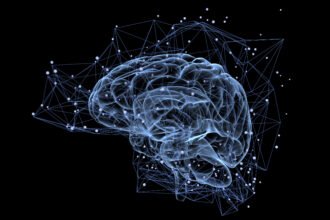In today’s fast-paced world, it’s more important than ever to take care of our mental health. Mindfulness means paying attention to the present moment instead of worrying about the past or future. Research shows that mindfulness offers scientifically-backed techniques to reduce stress, anxiety, and depression while boosting overall wellbeing.
- The Proven Benefits of Mindfulness for Mental Health
- Building a Regular Mindfulness Practice
- Overcoming Common Mindfulness Challenges
- Bringing Mindfulness Into Relationships
- Mastering Advanced Mindfulness Techniques
- Walking Meditation Builds Concentration
- Yoga Increases Body Awareness and Resilience
- Visualization Rewires Your Brain
- Retreats Allow Rapid Personal Growth
- Be Patient as You Gradually Level Up Your Skills
- Tracking Your Progress with Mindfulness
- Frequently Asked Questions
- Conclusion
This article explains what mindfulness is and how you can use simple mindfulness activities to feel calmer, focus better, and build healthy habits. Fun ideas like mindful breathing, movement, and eating are great ways to give mindfulness a try. Join us as we explore how just a few minutes of mindfulness each day can boost your outlook and well-being!
The Proven Benefits of Mindfulness for Mental Health
Mindfulness has also shown promise in treating addiction and supporting mental health recovery. Studies demonstrate mindfulness practices can reduce cravings, prevent relapse, and help manage co-occurring mood disorders for those overcoming substance use addiction and mental illness.
Mindfulness helps stabilize emotion regulation and focus, allowing people in addiction recovery and mental health treatment to make healthier life choices. Extensive research over the past few decades highlights the powerful benefits of mindfulness for both addiction and mental health:
- Reduced Stress: Mindfulness activates the body’s relaxation response, lowering blood pressure, heart rate, and levels of cortisol and other stress hormones. Studies show it provides an almost immediate calming effect during stressful situations that is sustained with regular practice.
- Less Anxiety and Depression: Clinical trials demonstrate mindfulness-based therapy significantly reduces symptoms of anxiety disorders such as phobias, social anxiety, OCD, and PTSD. It also prevents recurrent depression in those with a history of depressive episodes.
- Increased Resilience: Brain imaging confirms that mindfulness strengthens activity in the prefrontal cortex, anterior cingulate cortex, and other areas related to self-regulation of emotions and resilience. This effect is linked to decreased reactivity to stressful stimuli.
- Enhanced Self-Esteem: Mindfulness meditation helps people view internal experiences and personal attributes with greater objectivity, allowing negative thoughts to be recognized as passing mental states rather than reflections of the self. This self-compassion effect enhances feelings of self-worth.
- Improved Focus: Studies demonstrate mindfulness boosts visuospatial processing, working memory, and sustained attention. MRI scans show it increases the density of gray matter in brain regions linked to learning, memory, and executive function.
- Better Sleep: Mindfulness reduces rumination at bedtime, helping initiate sleep and return to sleep after night wakings. It also improves sleep quality and duration for people with chronic insomnia.
The wide-ranging benefits make mindfulness a powerful tool for cultivating mental health and wellbeing.
Building a Regular Mindfulness Practice
Integrating mindfulness into your daily life is simple once it becomes a habit. Follow these practical steps:
- Start small. Begin with brief 5-10 minute daily sessions. This approach has been shown to be just as effective as longer sessions for boosting well-being. Gradually increase the time when 10 minutes feels comfortable.
- Make it a routine. Find a consistent time each day that works for your schedule, whether morning, afternoon, or evening. Use parts of your established routine to trigger the new habit, like after your morning shower or brushing your teeth before bed.
- Explore techniques. Try different techniques such as breath awareness, body scan, mindful eating, yoga, walking meditation, and mantra repetition. See what resonates then rotate through a few, keeping the practice novel.
- Use reminders. Place sticky note reminders where you’ll see them, schedule calendar alerts, or use apps like Calm, Headspace, and Insight Timer which have built-in notifications.
- Focus on the present. During each session, bring a gentle curiosity to any thoughts, emotions, and physical sensations that arise without judging them as good or bad. Simply notice them then return focus to the present.
- Practice self-compassion. Mindfulness is about openness and non-judgment. If your mind wanders, be kind to yourself as you refocus. Celebrate small successes while developing this new skill.
Sample Mindfulness Techniques
There are countless ways to cultivate mindfulness. Try these evidence-based techniques:
- Body Scan Meditation: Lie down in a comfortable position and systematically scan sensations from head to toe. Notice but don’t analyze each sensation.
- Mindful Eating: Purposefully pay close attention to the smell, texture, taste, and sensation of each bite of food or drink. Chew slowly while concentrating fully on the eating experience.
- Breath Awareness: Sit comfortably and turn your focus to the physical sensation of breathing. Feel the inhale and exhale without attempting to control the breath. Just observe each breath as it comes and goes.
- Walking Meditation: Go for a mindful walk, focusing intently on the specific sensations of each step. Feel the subtle movements in your feet, legs, arms, and torso with every step.
- Yoga: Link the breath with movement through a series of poses. Notice all the physical sensations and the state of mind in each position without self-judgment.
- Open Monitoring: Pay mindful attention to sights, sounds, tastes, smells, physical sensations, and mental states throughout your day. Avoid analyzing the experiences.
Overcoming Common Mindfulness Challenges
Starting a mindfulness habit takes commitment and patience. Some typical challenges include:
- No time: Even one minute of mindful breathing makes a difference. Schedule mindfulness sessions like any important activity.
- Forgetfulness: Place triggers in your environment to remember, like keeping a yoga mat visible or setting phone alerts.
- Impatience: Remember mindfulness is a skill requiring practice. Recognize thoughts of frustration and let them pass.
- Distractions: Gently return focus to your body and breath when the mind wanders. Mindfulness improves your ability to concentrate.
- Discomfort: Start with brief sessions and build tolerance. Accept discomfort mindfully as a temporary state of mind.
Bringing Mindfulness Into Relationships
Relationships with family, friends, classmates, and teachers are a huge part of everyday life. While these relationships can be great sources of joy, they can also spark misunderstandings, hurt feelings, and drama. Mindfulness is a superpower that can help you navigate relationships with openness, patience, and care.
Here are some mindfulness techniques you can use to cultivate healthier relationships:
| Mindfulness Technique | Description |
| Mindful Breathing | When you feel tension or conflict arising, take 60 seconds to practice mindful breathing. Breathe deeply into your belly, counting silently to five on each inhale and exhale. This can help reset your nervous system and allow you to respond thoughtfully rather than react hastily. |
| Listen Closely | Make an effort to truly understand the other person’s perspective, even if you disagree with their point of view. Try to see the situation from their eyes and appreciate their unique experiences and beliefs. |
| Seek Compromise | Instead of trying to “win” an argument, look for ways to find a middle ground or compromise that satisfies both parties. Suggest taking a break from the discussion if emotions are running high, and revisit the topic later when both parties have had time to cool down. |
| Use “I Feel” Statements | When expressing your own perspective, use “I feel” statements instead of accusatory “you” statements. For example, say “I feel frustrated when…” rather than “You make me frustrated by…” This approach helps avoid blaming and encourages open communication. |
| Replace Judgment with Curiosity | Instead of judging or criticizing others’ actions, approach them with curiosity and try to understand the reasons behind their behavior. Ask yourself why they might act in a certain way, and remember that everyone is a fellow human navigating life’s challenges. |
| Practice Patience and Compassion | Cultivate patience and compassion in your relationships, even when others are having a bad day or acting in a way that upsets you. Remember that everyone is trying their best, and extend the same kindness and understanding that you would hope to receive. |
Finally, replace judgments with curiosity and care. Ask, “Why do they act this way?” instead of “What’s their problem?” See everyone as fellow humans traveling the tricky path of life, just like you. We all have bad days. With mindfulness, you can build stronger connections.
Finally, be kind and patient with yourself and others as you build mindfulness skills. Seek community based treatment to help motivate your practice. Local meditation groups, mindfulness workshops, and mental health peer networks can provide encouragement as well as new techniques to try.
Practicing patience and compassion with the many personalities around you each day allows your relationships and your inner peace to thrive. Mindfulness takes dedication, but a wealth of resources can ease the journey.
With regular practice of these research-backed mindfulness activities, you’ll notice improvements in your focus, resilience, and well-being. Soon mindful presence will become your steady companion through life’s ups and downs.
Mastering Advanced Mindfulness Techniques
Once you become familiar with basic mindfulness practices, you can explore more advanced techniques that could profoundly transform your mental health.
Walking Meditation Builds Concentration
Walking meditation is an active mindfulness practice where you slowly and mindfully walk along a path, directing non-judgmental attention to the physical sensations that arise. Notice the pad of your foot touching the ground, the swinging of your arms, the sounds around you, and the rise and fall of your belly as you breathe. If thoughts distract you, gently return your focus to the walk. Regular walking meditation strengthens concentration skills.
Yoga Increases Body Awareness and Resilience
Body-based practices like yoga teach you to become attuned to messages from your physical self. Notice areas holding tension or discomfort. Consciously relax tense muscles and joints through gentle stretches. Yoga helps release trapped emotions while increasing body awareness, flexibility, balance, and emotional resilience.
Visualization Rewires Your Brain
Some advanced meditators practice visualization, a technique athletes use to enhance performance. Start by picturing yourself in a favorite calm setting using all your senses. Then visualize goals you’d like to accomplish or how you’d like to feel. Repeated visualization literally helps rewire your brain towards desired outcomes.
Retreats Allow Rapid Personal Growth
Mindfulness retreats offer immersive experiences free from everyday disruptions. Retreats typically provide guidance in various meditation techniques while limiting distractions. With commitment and practice, retreats allow rapid growth in stress reduction, emotional intelligence, and self-understanding.
Be Patient as You Gradually Level Up Your Skills
From walking meditation to visualization, advanced mindfulness skills cultivate incredible focus and awareness. Be patient with yourself as you gradually strengthen your mental health through proven, progressive techniques.
Tracking Your Progress with Mindfulness
To optimize and sustain your mindfulness practice:
- Keep a journal: Write about your experiences after mindfulness sessions. Look for patterns over weeks and months.
- Use apps: Apps like Calm, Headspace, and Insight Timer have tracking tools to view your progress.
- Notice changes: Recognize improvements in focus, resilience, relationships, and more that develop with regular mindfulness.
- Get support: Joining classes or following guided meditations and podcasts helps maintain motivation.
- Check-in: Reflect periodically on learnings and consider refinements to your practice as you advance.
Frequently Asked Questions
1. What is mindfulness?
Mindfulness is the practice of being fully present and engaged at the moment, aware of your thoughts and feelings without judgment.
2. How does mindfulness improve mental health?
Mindfulness helps reduce stress, anxiety, and depression by encouraging a state of relaxation and awareness, breaking cycles of negative thoughts.
3. Can mindfulness help with anxiety?
Yes, mindfulness techniques, such as meditation and focused breathing, can help calm the mind and reduce symptoms of anxiety.
4. How long should I practice mindfulness each day?
Even a few minutes a day can be beneficial. Starting with 5-10 minutes and gradually increasing the time can help build a sustainable practice.
5. Do I need special equipment to practice mindfulness?
No, mindfulness can be practiced anywhere and anytime without special equipment. All you need is a quiet space where you can focus without interruptions.
6. What are some simple mindfulness exercises for beginners?
Beginners can start with focused breathing, mindful observation (like noticing the sensations of walking), or guided meditations using apps or online resources.
7. How can mindfulness be incorporated into daily routines?
You can incorporate mindfulness into daily activities like eating, walking, or even while doing household chores by fully focusing on the tasks and sensations involved.
8. Is mindfulness religious?
Mindfulness has roots in Buddhist meditation, but it’s practiced globally across various cultures and religions as a secular technique for enhancing mental health.
9. Can children practice mindfulness?
Yes, children can benefit from mindfulness. It can improve their attention, emotional regulation, and empathy. Simple practices like mindful breathing or sensory activities are great for kids.
10. How does mindfulness differ from meditation?
Mindfulness is a form of meditation focused on awareness and acceptance of the present moment. However, meditation can also include other practices beyond mindfulness.
11. What should I do if I struggle to stay focused while practicing mindfulness?
It’s normal for the mind to wander. Gently acknowledge the distraction and bring your focus back to the present moment without judgment.
12. Can mindfulness help with chronic pain?
Yes, mindfulness can help manage chronic pain by changing the way you perceive pain, reducing stress, and improving emotional responses to pain.
13. What are the best times to practice mindfulness?
Anytime is a good time, but many find it helpful to practice mindfulness in the morning to start their day positively or in the evening to wind down.
14. How can mindfulness impact relationships?
Mindfulness can improve relationships by fostering empathy, active listening, and patience, leading to more meaningful and respectful interactions.
15. Are there any risks or downsides to practicing mindfulness?
Mindfulness is generally considered safe, but it might not be suitable for everyone, especially those with certain psychiatric conditions. It’s important to practice mindfulness in a way that feels comfortable and to seek guidance if needed.
Conclusion
Mindfulness is powerful yet simple. With just a few minutes of mindful breathing, movement, or focus each day, you can lower your stress and feel happier. Staying in the present helps your brain build healthy pathways to manage worries. By listening to your body, tasting each bite of a meal, or relaxing with calm movement, you incorporate mindfulness naturally. Start small by trying one new mindfulness activity this week.
Notice the difference it makes in your mood, concentration, and response to problems. Mindfulness won’t make struggles disappear, but it will help you face them with clarity and ease. Stick with your mindfulness routine to enjoy improved mental health and a brighter outlook each day!









